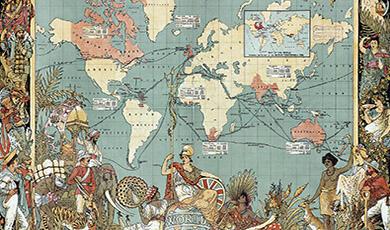Press release: Why did Europe's Economies Diverge from Asia?

Did the Great Divergence stem from Western Europe draining the wealth of colonised countries? Was it down to the use of coal that broke resource constraints? Or were other factors in play?
Embargo: Tues 8 Nov, 7pm,
I would like to invite you to the first lecture in Economic Historian Professor Martin Daunton’s series, Britain’s Empire and the Economy.
In his first lecture he will ask, Why did Europe’s Economies Diverge from Asia?, looking back to the Middle Ages when incomes in Bengal and China were comparable with those in Europe.
Ahead of his lecture, Professor Daunton said: “The Great Divergence has been interpreted by historians in different ways. Some historians see this as a result of the West draining the wealth from countries they had colonised. In this lecture I will discuss what we know – and what we don’t – about how Western European economies took off.”
In the lecture he will discuss the possible factors in the Mediterranean and Northern Europe pulling ahead, examining how coal and the Americas allowed for resource and energy-intensive development unlike labour-intensive development in Asia; looking at state policy that helped enable this, and state protection of new industries and support for trade. He will discuss how the British turned to maritime trade and sustained a successful navy, unlike the land-based states of Asia.
Professor Daunton will reflect on the recent reversal in position as China converges with income levels of the European countries, and on the ways that our energy-intensive take-off led to climate change and has led to calls for compensating those countries developing now.
ENDS
Notes for Editors
You can sign up for this lecture in person or online or email us for an embargoed transcript or to speak to Professor Daunton: l.graves@gresham.ac.uk
Read more about Professor Martin Daunton


 Login
Login


